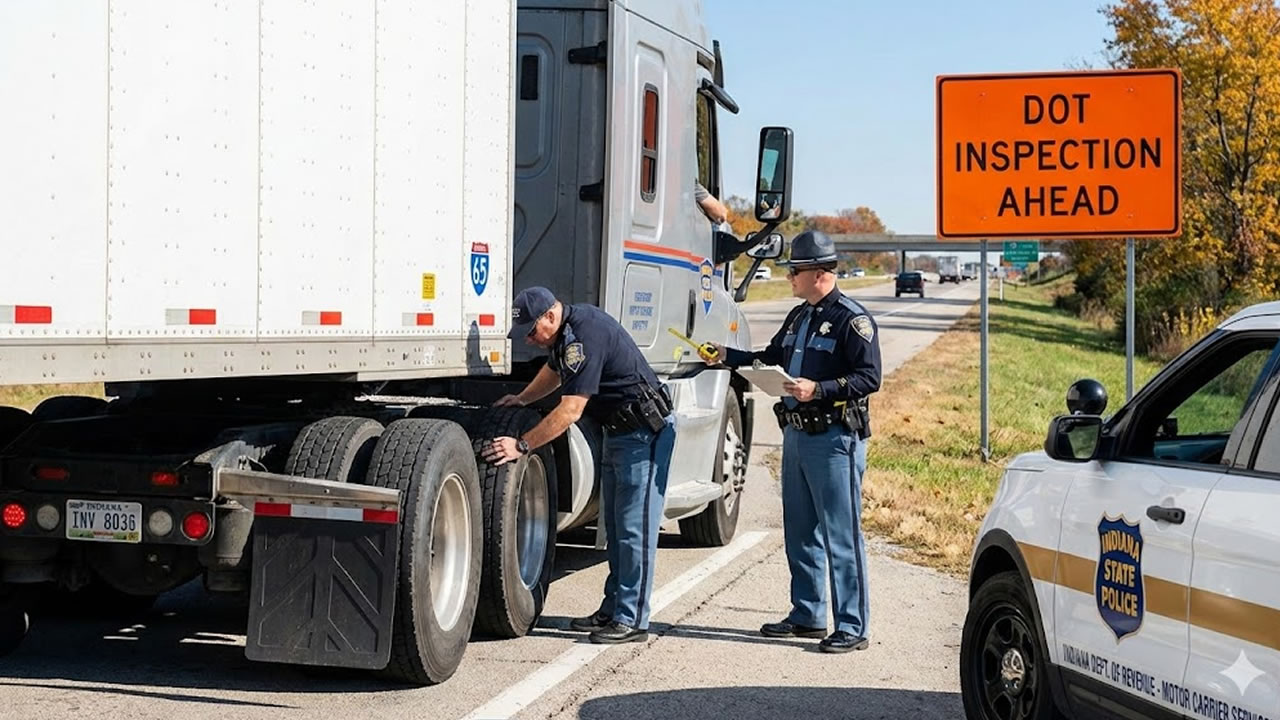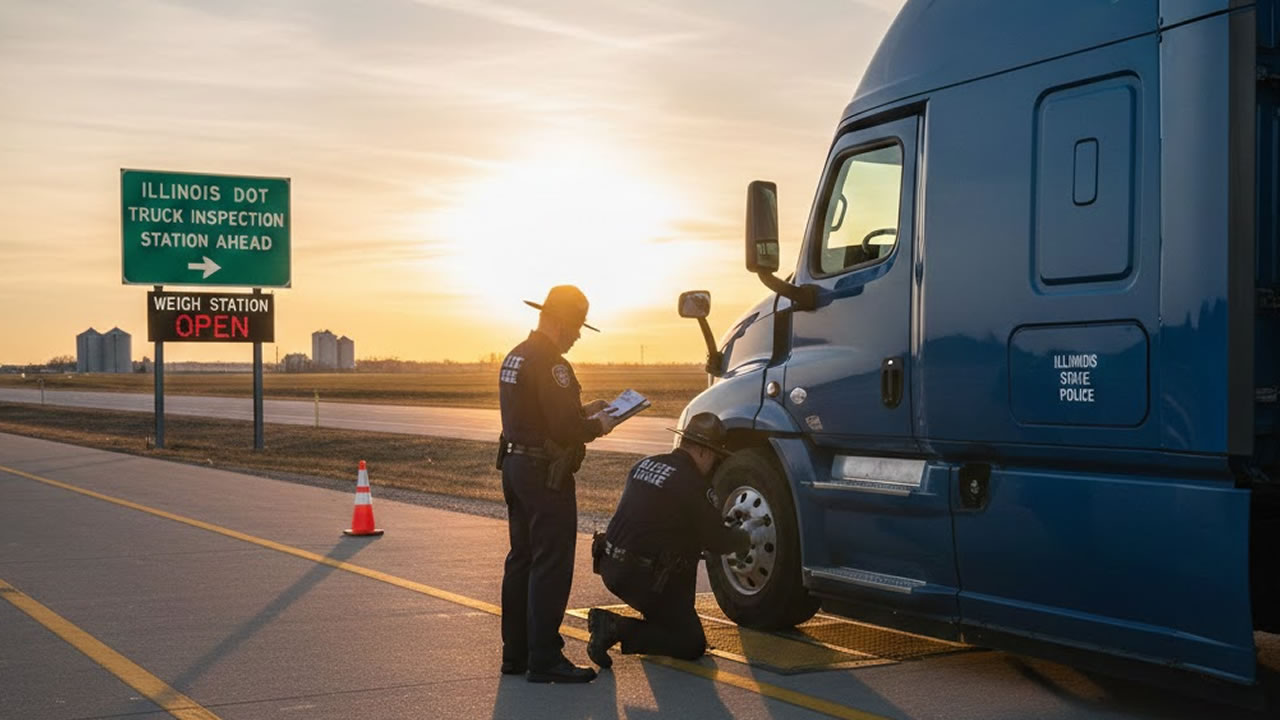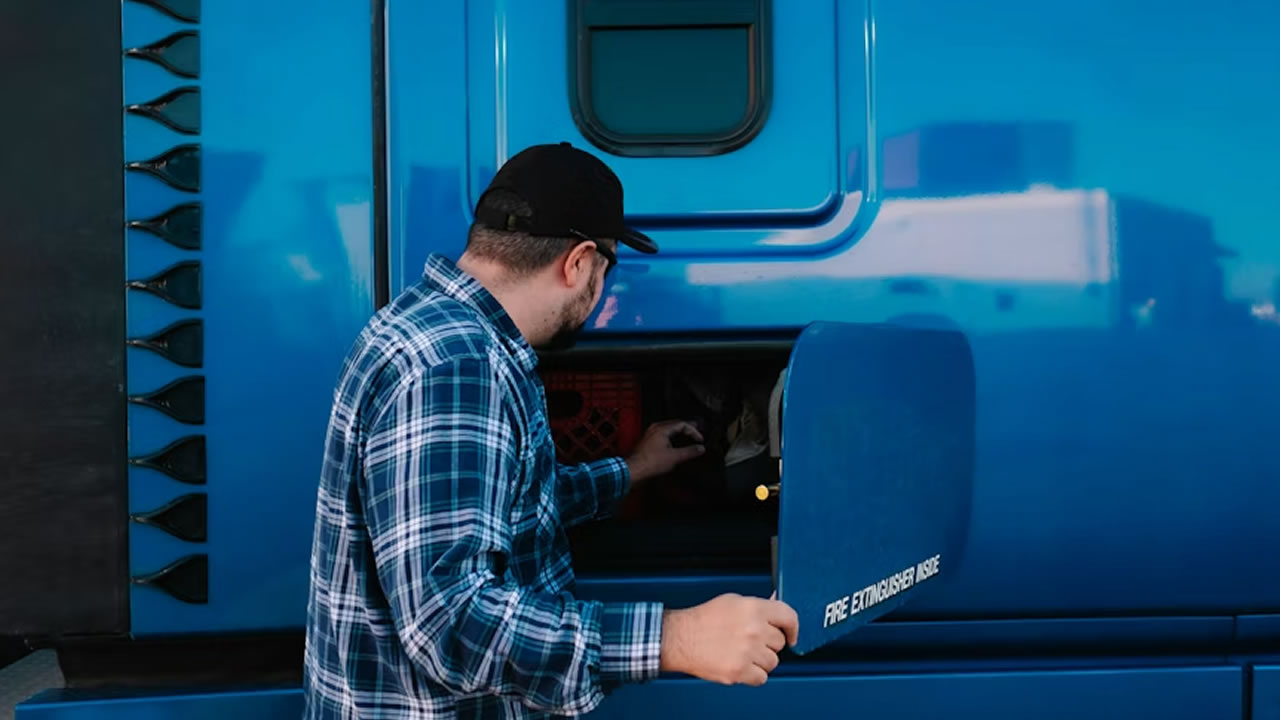-
DOT Truck Inspection in Indiana

The DOT truck inspection in Indiana establishes a required safety assessment that checks whether commercial vehicles comply with federal and state transportation regulations. The inspections evaluate three main areas, which include vehicle condition assessment, driver compliance verification, and the evaluation of existing documentation to confirm safe operations on Indiana highways. Commercial truck drivers and owner-operators,
-
DOT Truck Inspection in Illinois

DOT Truck Inspection in Illinois: The DOT truck inspection process in Illinois serves as a compulsory safety inspection that verifies that commercial motor vehicles fulfill both federal and state regulations. The inspections confirm that trucks on Illinois roads operate according to FMCSA rules while maintaining their road safety status, which helps decrease potential accidents. The
-
DOT Truck Inspection in Idaho

The DOT truck inspection in Idaho serves a crucial function by safeguarding highway safety while ensuring that commercial motor vehicles comply with state regulations. The inspections ensure that trucks and trailers and their drivers meet the safety requirements established by the Federal Motor Carrier Safety Administration (FMCSA) through their inspection process. The commercial vehicle inspections
-
DOT Truck Inspection in Hawaii

DOT Truck Inspection in Hawaii: The DOT truck inspections that occur in the Hawaiian Islands function as the main method of safeguarding public safety during roadway operations. The inspections verify that commercial motor vehicles achieve compliance with Federal Motor Carrier Safety Administration directives and Hawaii state transportation regulations. The inspection process includes testing all essential
-
DOT Truck Inspection in Georgia

The operation of DOT truck inspection in Georgia serves as an essential mechanism to ensure both traffic safety and operational compliance for commercial motor vehicles throughout the state. The inspections verify that trucks fulfill Federal Motor Carrier Safety Administration (FMCSA) requirements and Georgia Department of Public Safety standards. The inspection process provides essential knowledge to
-
DOT Truck Inspection in Florida

DOT truck inspection in Florida works as an essential system for protecting both commercial vehicles and their operation on state and federal highway systems. The inspection process ensures that Florida trucks operate according to Federal Motor Carrier Safety Administration standards. Regular inspection programs for all carriers between states and local fleets lead to lower rates
-
DOT Truck Inspection in Delaware

DOT Truck Inspection in Delaware performs an essential function to maintain commercial motor vehicle safety while ensuring adherence to both federal and state regulations. The inspections verify that all trucks driving on Delaware highways comply with the Federal Motor Carrier Safety Administration (FMCSA) requirements. The inspection process checks brake systems and tires and driver credentials
-
DOT Truck Inspection in Connecticut

DOT Truck Inspection in Connecticut: The Department of Transportation Truck Inspection process in Connecticut serves an essential function because it protects public roads by making sure commercial vehicles comply with both safety regulations and operational rules that apply to their movement across the state. The inspection process confirms that trucks fulfill the safety requirements that
